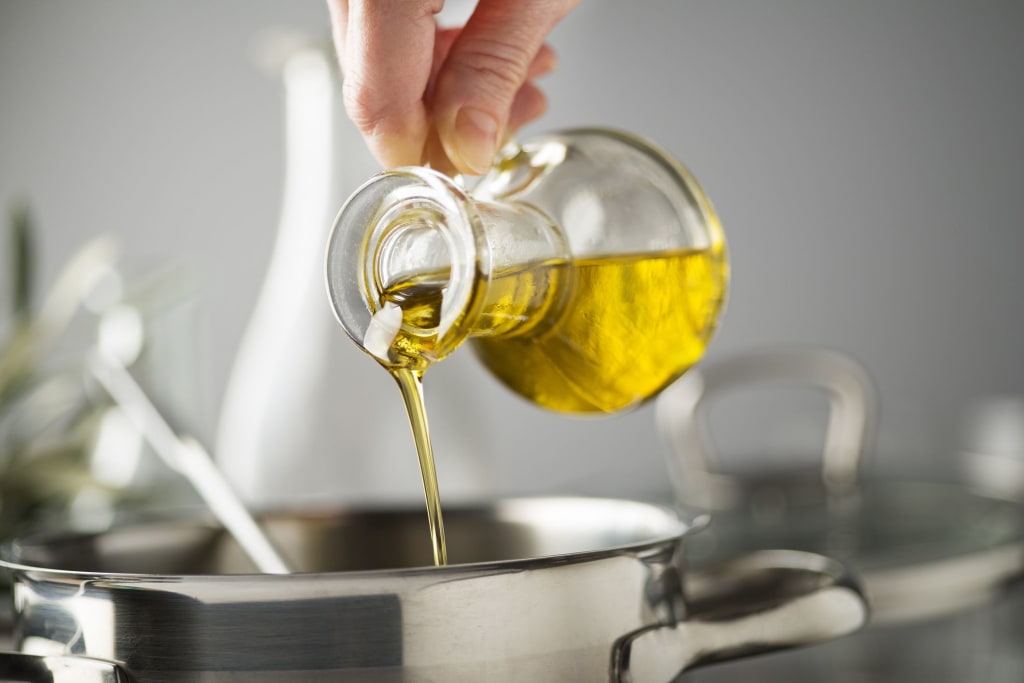These Common Cooking Oils Could Be Harmful to Your Health, According To A Holistic Nutritionist
This is for you!

How do you choose cooking oils when you go to the grocery store to restock? Do you choose the least expensive option? the one that your parents regularly purchased? Or just the one with the most attractive bottle? Whatever the criteria, it's probably a good idea to be aware of the fact that most seed oils aren't all that healthy.
Furthermore, highly processed oils were never originally intended to be a part of our regular diets, according to best-selling author and holistic nutritionist Kelly LeVeque. She discusses all the details of these dubious oils in a recent Instagram video.
The lowdown on processed oils.
Soybean, corn, canola (rapeseed), sunflower (additional information on the subtleties of sunflower oil here), safflower, cottonseed, grapeseed, and rice bran are some of the oils mentioned in Leveque's post. Industrial seed oils were regarded as industrial waste and only used in the production of soap until 1911, but in the last two decades, they have been added to a wide range of products, including oat milk, protein bars, cookies, crackers, dip, dressings, and prepackaged foods. Additionally, all fast-casual and fast food restaurants use them to cook and fry everything, she writes in her blog post.
These oils are produced by heating seeds to high temperatures, which LeVeque claims can cause the polyunsaturated fats (PUFA) in the seeds to oxidize and produce byproducts that are toxic to people. Then, according to her, "these seeds are treated with a petroleum-based solvent such as hexane." The purpose of doing this is to get the most oil possible out of those seeds.
LeVeque claims that these oils are chemically deodorized as well because they smell like a combination of fish and unclean feet, which results in the formation of trans fats (which are notoriously bad for human health). These seed oils may ultimately be harmful to our general health if additional chemicals are added to increase the color.
"The increase [in] polyunsaturated fats, notably linoleic acid, has gone [up] 212 fold from 9.1% to 21.5% between [the] years of 1959 and 2008," cautions LeVeque. "We desire a 1:1 ratio, but we are now far distant from it. There was a 12:1 omega-6 to omega-3 ratio when I started writing my first book in 2016, and current estimates show that this ratio has more than doubled."
What to do instead.
Small dietary changes that have a long-term influence on your health include switching out these industrial seed oils with healthier alternatives that can actually benefit your body. This is a fantastic place to start. Recommendation from us? avocado oil or extra virgin olive oil.
These plant oils are naturally high in antioxidants, but they also contain monounsaturated fats, such as omega-9 fatty acid oleic acid, which supports cardiometabolic health and may even aid to lengthen life. (There are also six additional healthy oil choices listed here.)
These fats, also known as good fats, can help the body absorb vitamin D, which is why we added a premium organic oil trio—organic EVOO, avocado, and flaxseed oils—in our ground-breaking and wildly successful vitamin D3 pill.
One gelcap of mbg's vitamin D3 potency+ provides 5,000 IU of organic, sustainably sourced algal vitamin D3, which is clinically proven to be effective. Additionally, it provides pro-metabolic omega-3 and omega-9 fatty acids.
You can take two concrete steps to enhance your general health: swap certain processed seed oils for EVOO and incorporate a specific supplement into your daily regimen. In addition, it's crucial to make sure that your favorite "health" foods don't contain any of these highly processed oils by looking at the ingredient list. It's important to have the information necessary to make healthy decisions, and your pantry now contains one fewer item that is hiding from view.





Comments
There are no comments for this story
Be the first to respond and start the conversation.